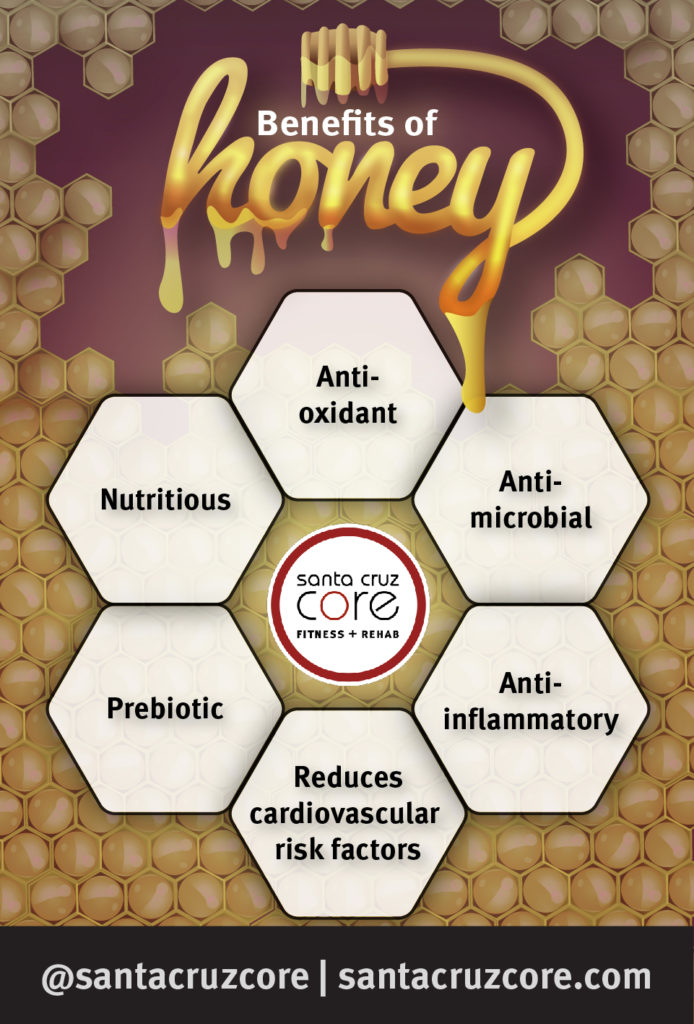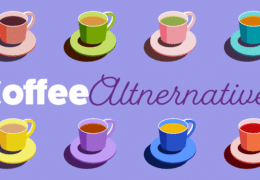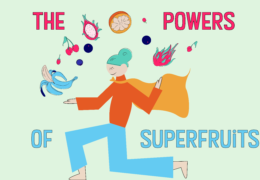 Honey has many uses in the home. It can be used as a sweeter or topping and is a popular remedy in times of illness. It can also be used to treat sore throats and skin burns, to make face masks and topical creams, and has even been studied to treat cancer.
Honey has many uses in the home. It can be used as a sweeter or topping and is a popular remedy in times of illness. It can also be used to treat sore throats and skin burns, to make face masks and topical creams, and has even been studied to treat cancer.
It’s Contents
Honey is made by bees with the nectar they collect from flowers and varies depending on the flowers used to make it. Therefore, it can be made from a single type of flower, a selected few, a variety of flowers, and flowers from a local environment. Because of this, honey from different locations can have different colors, aromas, tastes, and textures.
It contains carbohydrates (sugars) including glucose, fructose, and sucrose. It is usually less than 20% water, has protein in the form of enzymes, amino acids, antioxidants, vitamins, and minerals. Vitamins include vitamin C, and B vitamins including- riboflavin(B2), niacin(B3), and folate(B9). Minerals include calcium, zinc, potassium, Magnesium, iron, and phosphorus.
Benefits
-
Antioxidant-
Antioxidants in honey include vitamin C and polyphenols. Antioxidants are known to counteract oxidative damage which is detrimental to cell walls and the vascular lining. Because of this, they can be preventive for heart disease and cancer.
-
Antimicrobial-
The antimicrobial properties of honey may be attributed to its low pH (high acidity) which does not favor microbial life. For example, microbes that it may protect against include bacteria, fungi, and viruses (1).
-
Anti-inflammatory-
Polyphenols and other antioxidants in it may contribute to its anti-inflammatory effects. For instance, certain kinds, like Gelam honey, may target inflammation by reducing inflammatory mediators like COX-2 (cyclooxygenase-2)(2). COX-2 inhibitors are a type of NSAID (Non-steroidal Anti-inflammatory Drug).
As a Sugar Substitute
Honey is very sweet is a common sugar substitute. It has a unique flavor that is soothing and is more nutritious than table sugar (sucrose). Whether or not it is a good sugar substitute depends on the individual. It holds caloric value and so it may not be the best option for those trying to cut sugar because of calories.
Honey has a glycemic index that is only slightly lower than that of table sugar and is thus not the best sugar substitute for diabetics. The glycemic index is a measure of how quickly sugar releases into the bloodstream after eating a certain food. As a result, if this happens quickly, there will be an insulin spike that will contribute to unstable blood sugar, hunger, and mood.
Immunity
Local honey can help lessen or relieve allergies. The logic here is that trace amounts of pollen (allergens) from local flowers in the honey will help desensitize the immune response when later exposed. Allergic reactions are known as hypersensitivity reactions in immunology, this means that desensitizing the immune response will lessen the allergic reaction. Controlled chronic exposure to allergens has been a technique for reducing allergies for a long time.
While the logic favors local honey as an allergy treatment, however, most studies that test the effects of this as a treatment for allergies do not support this claim. Many studies are contradictory, some are inconclusive, and some attribute change to the placebo effect. Regardless, it is delicious and a healthier option to sugar.
Furthermore, the best way to maximize health and get results is to address diet and nutrition and all its contributing factors. Talk to our staff at Santa Cruz Core to set up a series of consultations in with our Integrative and Functional Nutritionist today to learn more about the potential benefits of honey.
References-
Israili, Z H. “Antimicrobial Properties of Honey: American Journal of Therapeutics.” LWW, Oxford University Press, https://www.ncbi.nlm.nih.gov/pubmed/23782759
Vallianou, Natalia G, et al. “Honey and Its Anti-Inflammatory, Anti-Bacterial and Anti-Oxidant Properties.” OMICS International, OMICS International, www.omicsonline.org/peer-reviewed/phoney-and-its-antiinflammatory-antibacterial-and-antioxidant-propertiesp-23335.html.









